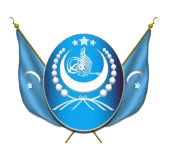Chinese Police Prevent Bavarian PM from Conducting Interview at Tiananmen Square
Press Release – For immediate release
20 November 2014
Contact: World Uyghur Congress www.uyghurcongress.org
0049 (0) 89 5432 1999 or [email protected]
World Uyghur Congress, Munich – The World Uyghur Congress would like to call attention to the treatment of foreign dignitaries to China. Just yesterday, Bavaria’s Prime Minister, Horst Seehofer, was stopped by police and prevented from conducting an interview at the historic “Gate of Heavenly Peace” in Tiananmen Square. Though the incident roused little attention, such an event is very much representative of press freedom in much of China, something that must be addressed before any real progress can be made.
Police cited that the crew hadn’t gained permission to record audio at that location and also mentioned that the restriction to 2 minutes of filming at the location was also exceeded by the team. Onlookers who gathered around the scene were also quickly removed by Chinese security forces. Cell phones of some of the onlookers who had been filming the incident were also confiscated in the incident.
Freedom House, a US-based organization that documents levels of freedom around the world, including freedom of the press, most recently gave China a score of 6.5 out of 7 (7 being the worst). Press freedom has consistently been a major problem in China, along with constant curbs on access to the Internet. Sites like Google, Twitter, Facebook and YouTube have all been blocked to varying degrees as a means to control dissenting voices. There have, however, been innovative workarounds that have challenged the system, but Chinese authorities have responded by clamping down further.
The true test will likely come upon the expected visit of the new High Commissioner for Human Rights, Prince Zeid bin Ra’ad, who mentioned that a trip to Tibet and Xinjiang will be expected in the coming years of his term. At a certain point, China will need to open its doors to legitimate criticism and take this advice not as an attack on its values or culture, but as reasonable and constructive input to ensure that not only does the country flourish, but the individuals as well.
Blocking the Bavarian Prime Minister from speaking at Tiananmen Square may seem like only a minor restriction of the freedom of the press, but amongst the much more obvious tactics it is highly representative of the state’s desire to control and monitor communication between individuals and groups. The state has been keen to control the both the dissemination of information regarding current events, but has also been active in erasing any traces of past incidents of dissent. We would like to remind the international community that such restrictions on freedom of the press and of movement is not an anomaly, but remains the norm in much of the country.
It may be instructive here to recall the words of Alfred Whitney Griswold, who, when writing about the importance of education and the dissemination of ideas once wrote, “Books won’t stay banned. They won’t burn. Ideas won’t go to jail. In the long run of history, the censor and the inquisitor have always lost. The only weapon against bad ideas is better ideas.”


